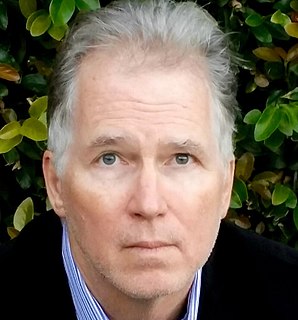A Quote by Thomas Huxley
The question of all questions for humanity, the problem which lies behind all others and is more interesting than any of them, is that of the determination of man's place in nature and his relation to the cosmos.
Related Quotes
See, I think our whole society is much too problem-solving oriented. It is far more interesting to participate in 'problem creation'... You know, ask yourself an interesting enough question and your attempt to find a tailor-made solution to that question will push you to a place where, pretty soon, you'll find yourself all by your lonesome - which I think is a more interesting place to be.
The ordinary naturalist is not sufficiently aware that when dogmatizing on what species are, he is grappling with the whole question of the organic world & its connection with the time past & with Man; that it involves the question of Man & his relation to the brutes, of instinct, intelligence & reason, of Creation, transmutation & progressive improvement or development. Each set of geological questions & of ethnological & zool. & botan. are parts of the great problem which is always assuming a new aspect.
If God were to exist for the entire humanity, he would be profoundly vile, as he allows the existence of unfathomable sin, stupidity, madness, and misery for no reason than his own despicable enjoyment. God exists though, not for all humanity, but for a one chosen man - a philosopher - who is bound to answer the greatest philosophical question, the question about the nature of the questioner's existence, which progressively quenches the divine vanity.
Very few men can speak of Nature, for instance, with any truth. They overstep her modesty, somehow or other, and confer no favor.They do not speak a good word for her. Most cry better than they speak, and you can get more nature out of them by pinching than by addressing them. The surliness with which the woodchopper speaks of his woods, handling them as indifferently as his axe, is better than the mealy-mouthed enthusiasm of the lover of nature. Better that the primrose by the river's brim be a yellow primrose, and nothing more, than that it be something less.
When one speaks of humanity, the idea is fundamental that this is something which separates and distinguishes man from nature. In reality, however, there is no such separation: "natural" qualities and those called truly "human" are inseparably grown together. Man, in his highest and noblest capacities, is wholly nature and embodies its uncanny dual character. Those of his abilities which are terrifying and considered inhuman may even be the fertile soil out of which alone all humanity can grow in impulse, deed, and work.
There are hidden contradictions in the minds of people who "love Nature" while deploring the "artificialities" with which "Man has spoiled Nature.'" The obvious contradiction lies in their choice of words, which imply that Man and his artifacts are not part of "Nature" : but beavers and their dams are.
Suicide may also be regarded as an experiment - a question which man puts to Nature, trying to force her to answer. The question is this: What change will death produce in a man's existence and in his insight into the nature of things? It is a clumsy experiment to make; for it involves the destruction of the very consciousness which puts the question and awaits the answer.
All that is limited by form, semblance, sound, color is called object. Among them all, man alone is more than an object. Though, like objects, he has form and semblance, He is not limited to form. He is more. He can attain to formlessness. When he is beyond form and semblance, beyond "this" and "that," where is the comparison with another object? Where is the conflict? What can stand in his way? He will rest in his eternal place which is no-place. He will be hidden in his own unfathomable secret. His nature sinks to its root in the One. His vitality, his power hide in secret Tao.
The man who has successfully solved the problem of his relations with the two worlds of data and symbols is a man who has no beliefs. With regard to the problems of practical life he entertains a series of working hypotheses, which serve his purposes, but are taken no more seriously than any other kind of tool or instrument. In other words, symbols should never be raised to the rank of dogmas, nor should any system be regarded as more than a provisional convenience.





































